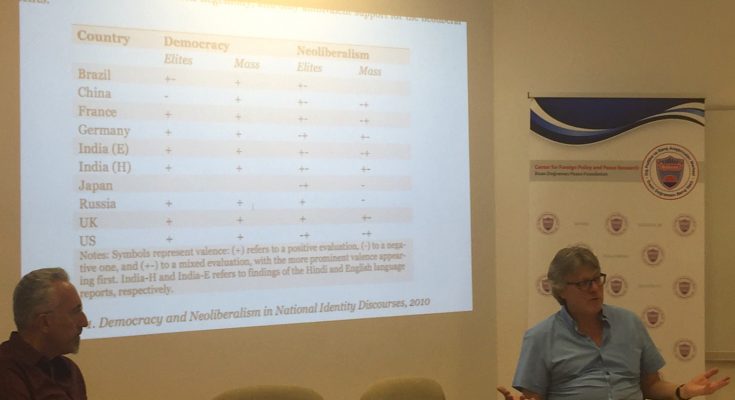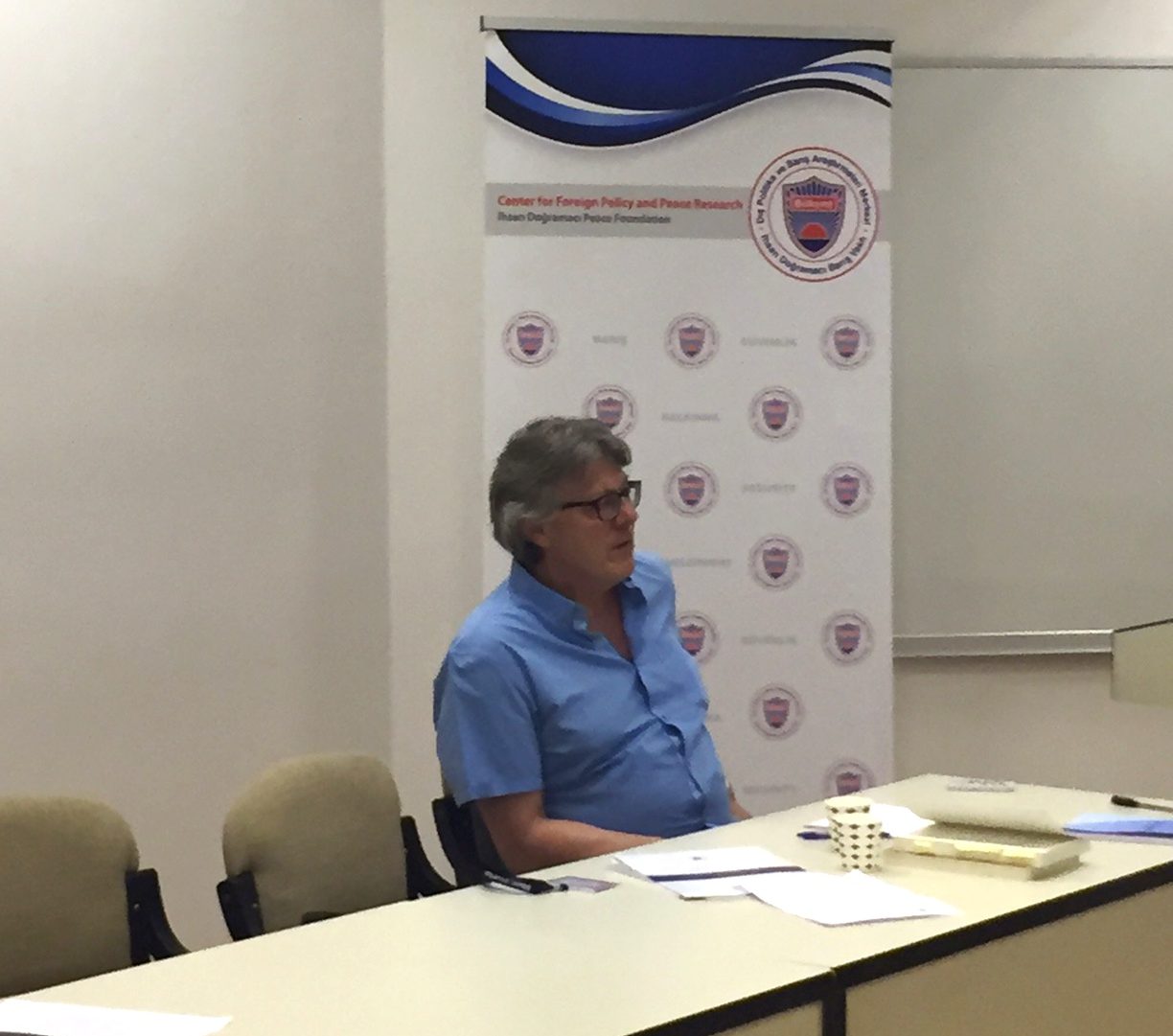The Distribution of Identity in International Politics and Hegemonic Transition
On September 19, 2017, Prof. Ted Hopf, Professor of Political Science at National University of Singapore, addressed a Senior Scholar Seminar at Bilkent University.
Prof. Hopf spoke on the subject of his forthcoming project entitled “The Distribution of Identity in International Politics and Hegemonic Transition”. He started with explaining the conventional view that accepts hegemonic transition as being the transfer of economic-military power from one power to another; and explained the inadequacy of this view for answering central questions regarding the future of international order.
Prof. Hopf argues that hegemonic transition or the future of international order is “shaped not only by material power but also by the distribution of identity across the great powers”. To better assess how this view supports the current Western hegemony, he presented empirical analysis that mapped out the distribution of identity among nine great powers – Brazil, China, Russia, the UK, the US, France, Germany, India, and Japan – at both the mass and elite levels. Before answering the audience’s questions, Prof. Hopf concluded his speech highlighting the findings that explain how and why China is unlikely to become the hegemon in the short-term.





